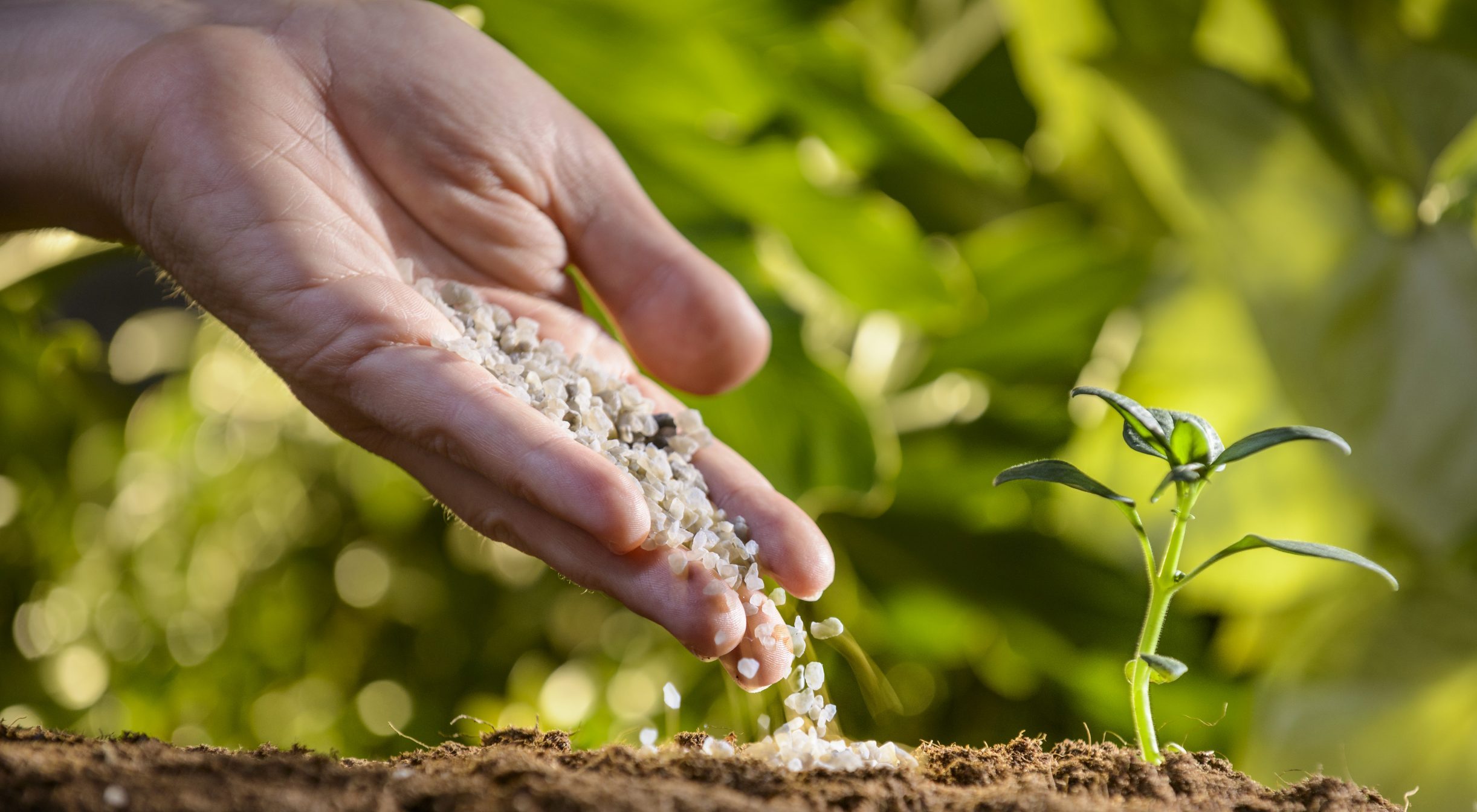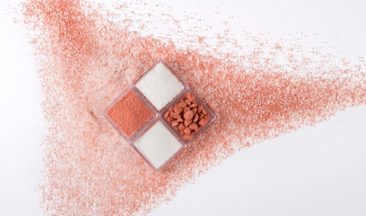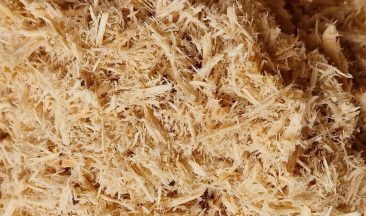There are currently major concerns about the availability (and cost) of manufactured fertilizers and the possible impact it’s having on global food production and food prices. As demand for sustainable agriculture continues to grow, we may see a wider transition toward the development of commercially viable and sustainable organic fertilizers.
There is already a significant, and growing, requirement for organic fertilizers that are produced in a circular economy. The public increasingly wants healthy, organic food products that are ethically sourced with a low carbon footprint. Farmers and agronomists need affordable fertilizers, of quantifiable and uniform nutrient composition, that deliver predictable results.
Governments are now cognizant of the demands that the projected population growth will place on food supplies. Organizations like the United Nations have clearly mapped out the current gap between resources and requirements.
Effective, affordable, and safe fertilizers will play a key if not vital role in feeding the human race by 2050. The UN predicts a global population of 10 billion people within the next three decades. That means transforming the global agricultural industry in this decade.
Polysulphate is a multi-nutrient organic fertilizer that ideally fits the requirements of sustainable agriculture. A single application delivers four essential plant nutrients, with a low environmental impact. It is simple to store and transport requires no special handling and has an almost indefinite shelf life.
Unlike the majority of commercially produced fertilizers, Polysulphate is not a manufactured product. It is mined in rock form and the production process is limited to crushing and sieving the mined rock into uniform granules of the desired size. A single application to a field or bed is often all that is required to achieve optimal plant nutrition.
Composition of Polysulphate
The composition of Polysulphate makes it a potent fertilizer that can both increase yields and improves plant health. A single Polysulphate crystal naturally contains four key plant nutrients: sulfur, potassium, magnesium, and calcium.
The precise composition of Polysulphate is
- 48% SO3 – sulfur in sulfate form
- 14% K2O – potassium in sulfate form
- 6% MgO – magnesium in sulfate form
- 17% CaO – calcium in sulfate form
As a 4-in-1 natural fertilizer, the potential uses of Polysulphate are substantial. Sulfur, potassium, magnesium, and calcium are all essential for healthy plant growth. Crops that receive optimal amounts of these nutrients are more disease resistant, more resilient to climatic variations, and have a greater nutrient density and higher final product value.
Polysulphate fertilizer is convenient to use and suitable for all crops and soil types. There are also several other benefits of Polysulphate that extend beyond improved crop yields and better quality food products.
ICL Boulby Mine
Benefits of Polysulphate
ICL currently mines Polysulphate from under the North Sea, via its site at Boulby in the United Kingdom. Undersea mining causes minimal environmental impact and little disruption to local communities. The 260 million-year-old polyhalite beds offer easy raw material extraction and an abundant supply of this superb mineral.
An analysis of Polysulphate as a commercial product shows how it fits neatly into the concept of circular economy and sustainability. The polyhalite rock is mined beneath the seabed and then processed at a nearby onshore plant. The proximity of the facilities reduces the logistical process and minimizes strain on the national infrastructure. The rock is crushed and packaged for distribution, but undergoes no other refinement or processing. It can then be shipped in bulk via local seaports.
Polysulphate can be used as a standalone fertilizer. The naturally occurring combination of sulfur, potassium, magnesium, and calcium creates an effective ‘nutritional package’ that can often be applied directly to the soil. Where necessary, Polysulphate can be used in combination with other fertilizers, but the application itself remains simple and cost-effective.
Polysulphate provides a prolonged and steady release of nutrients, matching the crop’s uptake of nutrients throughout its lifecycle. The gradual release of nutrients reduces nutrient leaching thus decreasing pollution hazards.
11 Reasons to Use Polysulphate
There are many reasons why farmers and agronomists are becoming increasingly keen to explore the uses of Polysulphate fertilizer and integrate them into their growth strategies.
- Polysulphate is compatible with every type of soil and growing condition. It can even be applied to acidic and saline-alkaline soils and is an effective source of nutrients for all crops.
- Polysulphate is ideal for cash crops and mechanized plantations, but Polysulphate granules can also be broadcast by hand. They can be distributed in bands for individual plants, or incorporated into the soil before sowing.
- Although Polysulphate is a standalone fertilizer, it is easy to use as an ingredient in bulk blends. Uniformly sized Polysulphate granules are convenient for blending with other fertilizers and it is compatible with all fertilizers.
- Food products that were nourished with Polysulphate potentially offer higher quality. They are nutrient-dense, taste better, are more likely to be blemish-free with richer colors, and have a longer shelf life.
- Polysulphate can help farmers who face challenging climatic conditions. Crops nourished by Polysulphate show improved resistance to drought and cold. They are also healthier and stronger and resistant to lodging.
- Polysulphate is low in chloride and is free of any other substances that may be detrimental to crops, soil, or the local environment. It has a very low salinity index and a neutral pH. It does not affect soil pH, so it is suitable for even the most sensitive crops.
- Polysulphate contains boron to help with the growth of boron-demanding crops like oilseed and sunflower – which are essential to the global supply of vegetable oils– and staples like beans and beets.
- Grape producers and fruit producers are quickly learning to value Polysulphate fertilizer for the role it plays in preventing cracking in fruits and berries.
- The gradual release of nutrients from Polysulphate granules reduces nutrient losses through leaching and runoff, thus decreasing environmental pollution. The prolonged nutrient release is a major advantage in sandy soils and areas with high rainfall.
- Polysulphate is a highly versatile ‘four-in-one’ organic fertilizer that contains essential nutrients for each stage of a plant’s growth. Polysulphate can easily be bulk blended with nitrogen, phosphate, and potash to create tailored fertilizer formulae at a local level.
- Polysulphate fertilizer is a ‘clean’ product that can be mass-produced with minimal environmental impact and has the lowest carbon footprint of any other commercially available fertilizer: 0.034 kg CO2e per kg of product.
ICL: Pioneering Fertilizers and Sustainable Agriculture
The ICL group is one of the world’s leading manufacturers of sustainable fertilizers. The interest in organic fertilizers grew from ICL’s background and a corporate culture that places huge value on research and development and innovation.
ICL is an international company with a global reach. It’s attuned to the challenges of food production and farming on different continents and is committed to developing data-based solutions that harness the company’s technical and scientific expertise.
ICL is deeply committed to implementing the United Nations Sustained Development Goals (SDGs), in particular, the second SDG of zero hunger. The production and distribution of sustainable organic fertilizers is an area where ICL is already making a key – and quantifiable – contribution. Products like ICL’s Polysulphate fertilizer have the immediate potential to help reclaim marginal lands and improve food security.
The production of Polysulphate is a showcase example of how companies can transform their operations to create a circular economy and socially responsible business practices. ICL is now at the forefront of 21st-century fertilizer production and is energetically exploring new types of sustainable fertilizers.
All R&D and business development is conducted within the wider context of the ICL’s zero-carbon plan. The objective is to integrate new business ventures into existing production processes and logistical systems, thus reducing energy requirements and achieving zero carbon status by 2050.







